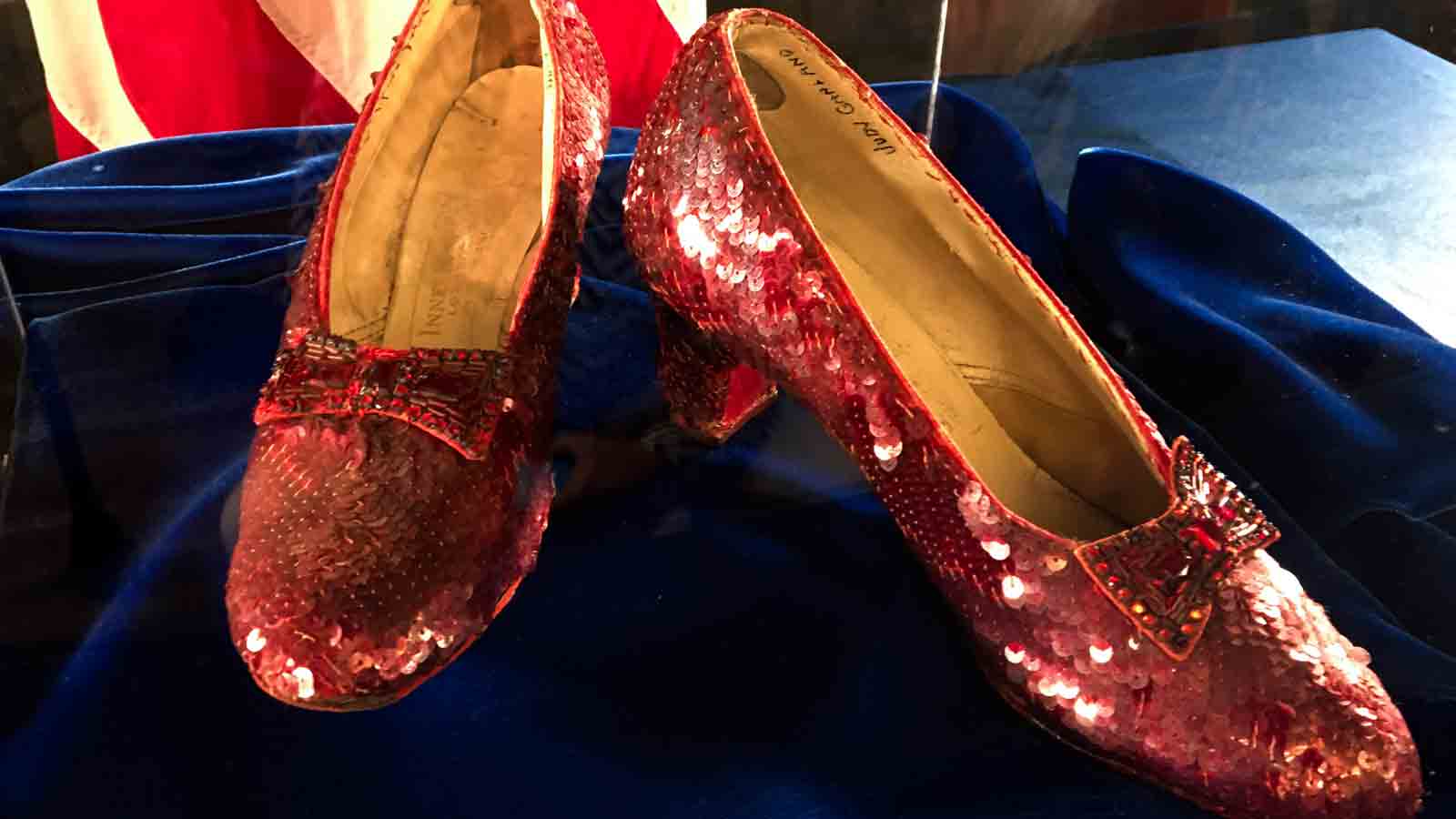Is TikTok trying to secretly influence Americans at the behest of the Chinese government?
That question is at the heart of the legal battle over a law passed by Congress that could result in a ban on the popular social media company in the United States — a clash that will play out in court Monday as each side presents oral arguments in a Washington, D.C., courtroom.
In court documents filed in advance of the hearing — heavily redacted, because they contain classified information — the Justice Department and a senior U.S. intelligence official say flatly that they have no direct evidence China has used TikTok for propaganda purposes in the U.S. They also say there is significant risk that could happen.
But a pair of academic studies — cited in the court documents and congressional testimony — make the case that the platform is biased in favor of Chinese government views, including suppressing information on China’s treatment of its Uyghur minority and its actions in Tibet. And an analysis of the ownership structure of TikTok parent company ByteDance, obtained by NBC News, argues that the company is deeply entangled with some of China’s major government propaganda organs.
The studies, by the Network Contagion Research Institute (NCRI) at Rutgers University, “present compelling and strong circumstantial evidence of TikTok’s covert content manipulation,” the authors wrote. The most recent one, published last month, found that TikTok suppresses anti-China content compared to YouTube and other social media platforms.
TikTok says the studies are deeply flawed. The Justice Department disagrees and cited some of the research in its brief for Monday’s oral arguments before the U.S. Court of Appeals for the District of Columbia, TikTok’s first foray into a federal courtroom to challenge the law. The case could ultimately end up at the Supreme Court.
U.S. & World
The ownership analysis, prepared by Strider Technologies — a private analytical firm with long experience sifting through publicly available information in China — examines the influence on TikTok of the Chinese government through what’s known as a golden share, a 1% interest in ByteDance’s main Chinese subsidiary that it says gives the company three directors’ seats and other special privileges. In recent years, according to media reports, Chinese government entities have increasingly taken golden shares in technology companies.
TikTok says there is nothing unusual about the structure.
Get a weekly recap of the latest San Francisco Bay Area housing news. Sign up for NBC Bay Area’s Housing Deconstructed newsletter.
Congress enacts a de facto ban
As many as a third of Americans ages 18 to 29 get most of their news from TikTok, and research shows half of that cohort uses the platform to keep up with politics. The platform’s growing popularity, amid an increasingly adversarial U.S. relationship with China, sparked a rare bipartisan movement to action this year in Washington.
In April, Congress passed a bill giving ByteDance 270 days to sell TikTok. If that doesn’t happen, the app would be subject to restrictions on downloads and content sharing. ByteDance says that amounts to a ban, and the company went to court to stop it, arguing it violates the free speech protections of the Constitution’s First Amendment.
Members of Congress from both parties say they view TikTok as essentially under the control of the Chinese government, regardless of the professions of independence by company officials.
“We shouldn’t lose sight of the fact that under Chinese law, TikTok’s owners are ultimately beholden not to shareholders or their users, but to the Communist Party of China,” Democratic Sen. Mark Warner, chairman of the Senate intelligence committee, said in a statement to NBC News.
American intelligence agencies for years have been raising concerns about what they say are the national security risks from TikTok, which they frame as potential harms that so far have not come to pass.
They say the risks are twofold: that the Chinese government could exploit the sensitive information TikTok retains on its 170 million U.S. users, including location and phone contacts; and that TikTok’s proprietary algorithm could be secretly manipulated by the Chinese government to shape the content that users receive “for its own malign purposes,” as the Justice Department brief puts it.
U.S. officials also point out that China’s national security law requires Chinese companies to provide data and otherwise cooperate with the government upon request.
TikTok counters that the information it collects is no different than that gathered by many popular apps, and it says it would never provide data or shape its content at the behest of the Chinese government. And it says the U.S. government also has the ability to demand user data from tech companies for intelligence and law enforcement purposes.
In an affidavit attached to the latest Justice Department filing, a senior intelligence official — Casey Blackburn, assistant director of national intelligence and the director of the Office of Economic Security and Emerging Technology at the Office of the Director of National Intelligence — wrote that ByteDance and TikTok “pose a potential threat to U.S. national security because they could be used by the [People’s Republic of China] against the United States in two principal ways: malign foreign influence targeting U.S. persons, and collection of sensitive data of U.S. persons.”
He wrote that “there is a risk that the PRC may coerce ByteDance or TikTok to covertly manipulate the information received by the millions of Americans that use the TikTok application every day, through censorship or manipulation of TikTok’s algorithm, in ways that benefit the PRC and harm the United States.”
But, he added, “we have no information that the PRC has done so with respect to the platform operated by TikTok in the United States.”
The NCRI analyses suggest that TikTok’s content delivery system already is skewed in ways that benefit the Chinese government.
The first one, published in December 2023 and cited in Blackburn’s affidavit, found that sensitive topics often censored by the Chinese government within its borders — including the Tiananmen Square massacre, Chinese oppression of Tibetans and the Uyghur population, and pro-democracy protests in Hong Kong — are significantly underrepresented on TikTok compared with Instagram. That is true even though content about pop culture topics generally appears at the same frequency on Instagram and TikTok, according to the analysis.
“We assess a strong possibility that content on TikTok is either amplified or suppressed based on its alignment with the interests of the Chinese government,” the report said.
In the second study, published last month, researchers created 24 accounts on Instagram, YouTube and TikTok, and searched for content that is often censored in China, including “Uyghur,” “Xinjiang,” “Tibet” and “Tiananmen.” The results include much more pro-China content than anti-China content, and far more irrelevant information than what came up on the other platforms, the study says.
“This report establishes that TikTok algorithms actively suppress content critical of the Chinese Communist Party (CCP) while simultaneously boosting pro-China propaganda and promoting distracting, irrelevant content,” the researchers wrote.
In a statement, TikTok called the study a “non-peer reviewed, flawed experiment … clearly engineered to reach a false, predetermined conclusion.”
A TikTok spokesperson added, “Creating fake accounts that interact with the app in a prescribed manner does not reflect real users’ experience, just as this so-called study does not reflect facts or reality.”
In his affidavit, Blackburn, the U.S. intelligence official, says the U.S. concern about content manipulation “is grounded in the actions ByteDance and TikTok have already taken overseas, and in [China’s] malign activities in the United States that, while not reliant on ByteDance and TikTok to date, demonstrate its capability and intent to engage in malign foreign influence and theft of sensitive data.”
A Chinese government stake
TikTok’s CEO has told Congress his company has no relationship with the Chinese Communist Party.
The Strider analysis points to the “golden share” owned by Net Investment Chinese (Beijing) Technology Co. That company is co-owned by the Communist Party-led China Central Radio and Television Station and the Beijing State-owned Cultural Assets Supervision and Administration Office, among other government entities, Strider found.
“Despite the relatively small economic ownership associated with this stake, the special share includes privileges that give Net Investment Chinese (Beijing) Technology Co., Ltd. and its government controllers significant influence over ByteDance,” Strider wrote in its analysis.
Among those the company appointed to the board of the ByteDance subsidiary is Wu Shugang, who “has spent most of his public sector career in propaganda roles since he joined China’s Ministry of Education in 2007, according to Chinese government websites and official media reports,” Strider found.
ByteDance has said that the Chinese subsidiary had to adopt a “special management share” arrangement to obtain the licenses for its social-media apps — and that the subsidiary doesn’t have input in the parent’s global operations, including TikTok.
A TikTok spokesperson said, "Everyone knows all international companies need to abide by the local laws and regulations of the jurisdictions in which they operate."
In their court brief, lawyers for TikTok did not seek to address the government’s concerns about national security, which they called “speculative,” or links to the Chinese Communist Party. They framed the case as entirely a dispute about free speech.
They cited a Supreme Court case decided at the height of the Cold War holding that the First Amendment barred efforts to ban receipt of “communist political propaganda” from foreign countries.
“Subject to narrow, well-established exceptions not applicable here, speech does not lose First Amendment protection because the government deems it untrue,” they wrote.
“Never before has Congress expressly singled out and shut down a specific speech forum. Never before has Congress silenced so much speech in a single act.”
This story first appeared on NBCNews.com. More from NBC News:



